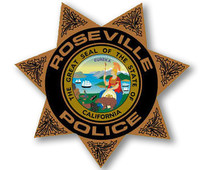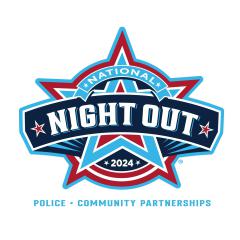
Take precautions when using Zelle
By: Rob Baquera, Public Information Officer, Roseville Police Department
It happens daily. Someone somewhere has become victim of a scam. You may even know someone that has lost a lot of money to scammers, maybe it’s even a family member. You might be thinking, “I would never fall for a scam.” Criminals today, however, are sophisticated, relentless and conniving.
Recently, Zelle scams have been in the news. Zelle is a peer-to-peer (P2P) payment method. Zelle is an easy way of sending money from one person to another in just minutes. Let’s say you want to send money to your grandson for his graduation. All you need to transfer the money is his mobile phone number or email address. Last year 1.8 billion payments were made using Zelle. With so many people using Zelle, it’s no wonder that criminals are targeting their users. Criminals are tricking users into sending them money. Once you send money using Zelle you have very little recourse in getting your money back. Since scam victims willingly send money to the scammers, banks and credit unions are not responsible for money lost.
Take precautions when using Zelle and other peer-to-peer payment methods.
- Only send money to people you know and trust. Never Zelle yourself. Once you send money through Zelle you cannot cancel it. It’s like sending cash.
- Make sure you have the correct email address or mobile phone number for your recipient. Double check to make sure the recipient hasn’t changed their email or phone number before you hit send.
- It’s best not to use Zelle to purchase goods or services from someone you don’t know. For example, you purchase San Francisco Giants’ tickets from a stranger on Facebook. What happens if you never get the tickets? You have no recourse. You are better off using a credit card. If you don’t receive the tickets, you can dispute the charge with your credit card company.
- Be wary of unexpected communication claiming to be from your bank, utility company, or any service provider. Anyone demanding payment from P2P, a gift card, or via Western Union are likely scammers. No legitimate company would require those types of payment methods.
- Sense of urgency payments should raise a red flag. If someone claiming to be a person that you do business (your bank, utility company, doctor’s office, etc.) demands immediate payment, stop your communication with them. Contact that company with the phone number you know to be legitimate.
- Never click on a text link from an entity you don’t know, and never answer a call from an unfamiliar number. Remember, scammers can spoof numbers so that it looks like it’ really coming from your bank, credit card company, etc.
- Before initializing a large transfer of money, talk to a family member or friend.
- Guard your personal information.
- Maximize your safety settings. Most popular payment apps allow users to enable multifactor authentication. It’s a way to safeguard your personal information and protect yourself from fraud and scams.
Zelle is offered by banks and credit unions all across the United States. It’s a fast and easy way to send and receive money from people you know and trust (your babysitter, coworker, or family member). Technology has made life easier, but it has also given criminals new tools to perpetuate new scams. So, the next time you get a call or text that seems a little off, realize that it may be a scam.












.jpg.296c4f9b814e93c3acee89acaac1d7e9.jpg)
.jpg.6b3ebaff1fd0e045cd8de51e87317c8a.jpg)
.jpg.1b55b3b439437918b8739148ddbf4171.jpg)
.jpg.793734edba13fb894471c2d86963beb0.jpg)
.jpg.a0deeb4f8c2ef2b5286ee415aa5bdef3.jpg)
.jpg.8f001df19b1cc4d522ddab16415656f3.jpg)
.jpg.607ba85a641473a3dce74f1e5c9ce1b3.jpg)
.jpg.e63821702a8055dc3839a87c52bbf86c.jpg)
.jpg.2149677f8044a79c93b9ad341cf1f2dd.jpg)
.jpg.2868d920626bba08a85a1aaed5391db6.jpg)
.jpg.b7e577504d33038e70c995c1cb0c3255.jpg)
.jpg.b06c4675de019177f8752c273ae3040d.jpg)
.jpg.13af6578261edcc098d86ede95e92d73.jpg)
.jpg.0a2155a39768c3c28f68d3cf20a6fbdb.jpg)
.jpg.b545a869278acaf5d9071e83cafb2378.jpg)
.jpg.2bc17dc7afb82ff85504e86ea3386f77.jpg)
.jpg.579b15c25b166b4db5b5837f5b425a40.jpg)
.jpg.56171e64df78f4aaed217a517c4bac59.jpg)
.jpg.8c548c5ab2e6f7a9813fa015857ad46f.jpg)
.jpg.ae7c2c1b1dd993e86dddae4a73651270.jpg)
.jpg.c3bf0d7fb41c08662a14de678b47ebb0.jpg)
.jpg.adc8fdbe54ede1d4ea166414870b6268.jpg)
.jpg.976b6d203b584bb3b95e72037ee7098a.jpg)
.jpg.75e5c92d60da119ec2bf3fde2b8efbe8.jpg)
.jpg.4348ef2ca3197a18004ededdeaa4e41b.jpg)
.jpg.74fdfe3d9fb982c6e29708f5ab219029.jpg)
.jpg.fea2c3c57714b3c4951fe7489592ee91.jpg)
.jpg.c09caa08007503b1d95eb68328d749ec.jpg)
.jpg.c4b4ea703eabe1f4d50dff2f05de700f.jpg)
.jpg.10e880365d144e5975bb69ef1201dfa0.jpg)
.jpg.46f7f8591acb1a18675bb82bb1a3d2ab.jpg)
.jpg.cbca1932c250203d4fb308e28a13258e.jpg)
.jpg.f1ca40f61b759b677e52e0e11655e271.jpg)
.jpg.1942a122c357e8307f1445ab8bb3bb6d.jpg)
.jpg.218a11559332d643e4964343378e4291.jpg)
.jpg.62287d46fedd6af165df9e335374bf5d.jpg)
.jpg.936bd69df0a5d4cf1899a38d4e766b45.jpg)
.jpg.00d9e487097a7111c1758523ba09550f.jpg)




Recommended Comments
There are no comments to display.
Join the conversation
You can post now and register later. If you have an account, sign in now to post with your account.